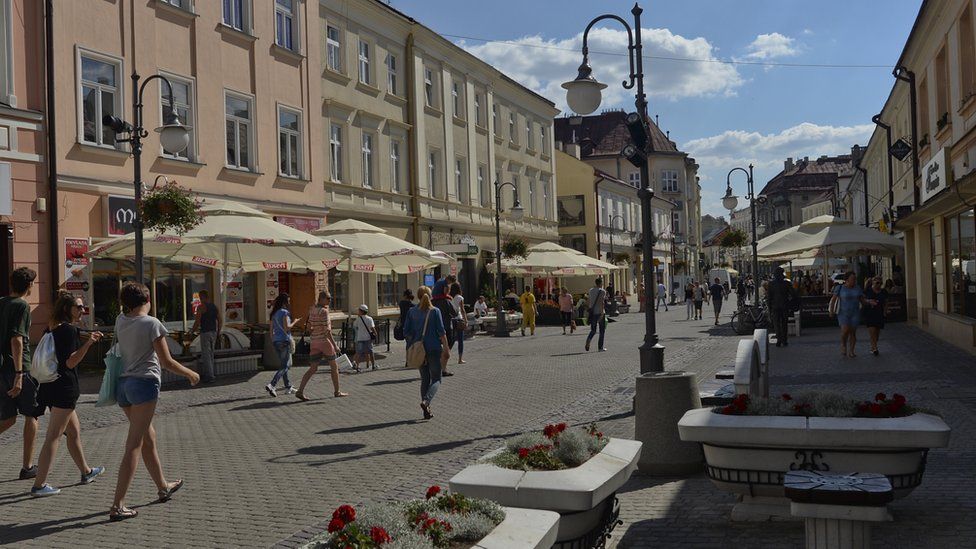ARTICLE AD BOX
 Image source, NurPhoto via Getty Images
Image source, NurPhoto via Getty Images
Rzeszow's authorities warned local residents to boil water before drinking it
By Adam Easton
BBC News, Warsaw
Fourteen people have died and more than 150 cases have been confirmed following an outbreak of Legionnaires' disease in south-eastern Poland.
Many of those infected have been taken to hospital since the outbreak was detected last week.
Nine new cases were diagnosed on Tuesday.
Authorities are still checking how the legionella bacteria, which causes the disease, got into the water supply in the Rzeszow city and its surroundings.
The outbreak's location initially raised concerns because Rzeszow is the hub for military and humanitarian aid for Ukraine and hosts a large US military presence.
"We have not identified any information that we are dealing with sabotage," Stanislaw Zaryn, the Polish government's plenipotentiary for information security, told the Polsat News broadcaster.
He said the special services wanted to rule out sabotage, given the outbreak's location.
Legionnaires' disease is a serious lung infection transmitted by inhaling tiny droplets of infected water - not by drinking contaminated water. It is not contagious.
People can become infected when taking a shower, flushing a toilet or from an air conditioning system.
Initial symptoms can be confused with influenza, and the over-50s and those whose immune systems are compromised are particularly vulnerable to the disease.
Legionnaires' disease is treated through a course of antibiotics.
Most of the people who died were elderly. All were suffering from other chronic illnesses including cancer.
The investigation to determine the cause of the outbreak is continuing. Initial test samples have proved inconclusive as to the source of the bacteria.
Additional chlorine has been added to the municipal water supply system as a decontaminant, and authorities have warned residents to boil water before drinking it.
The bacterium was first identified in 1977 as the cause of an outbreak of severe pneumonia at an American Legion convention centre in Philadelphia a year earlier.

 1 year ago
12
1 year ago
12








 English (US)
English (US)